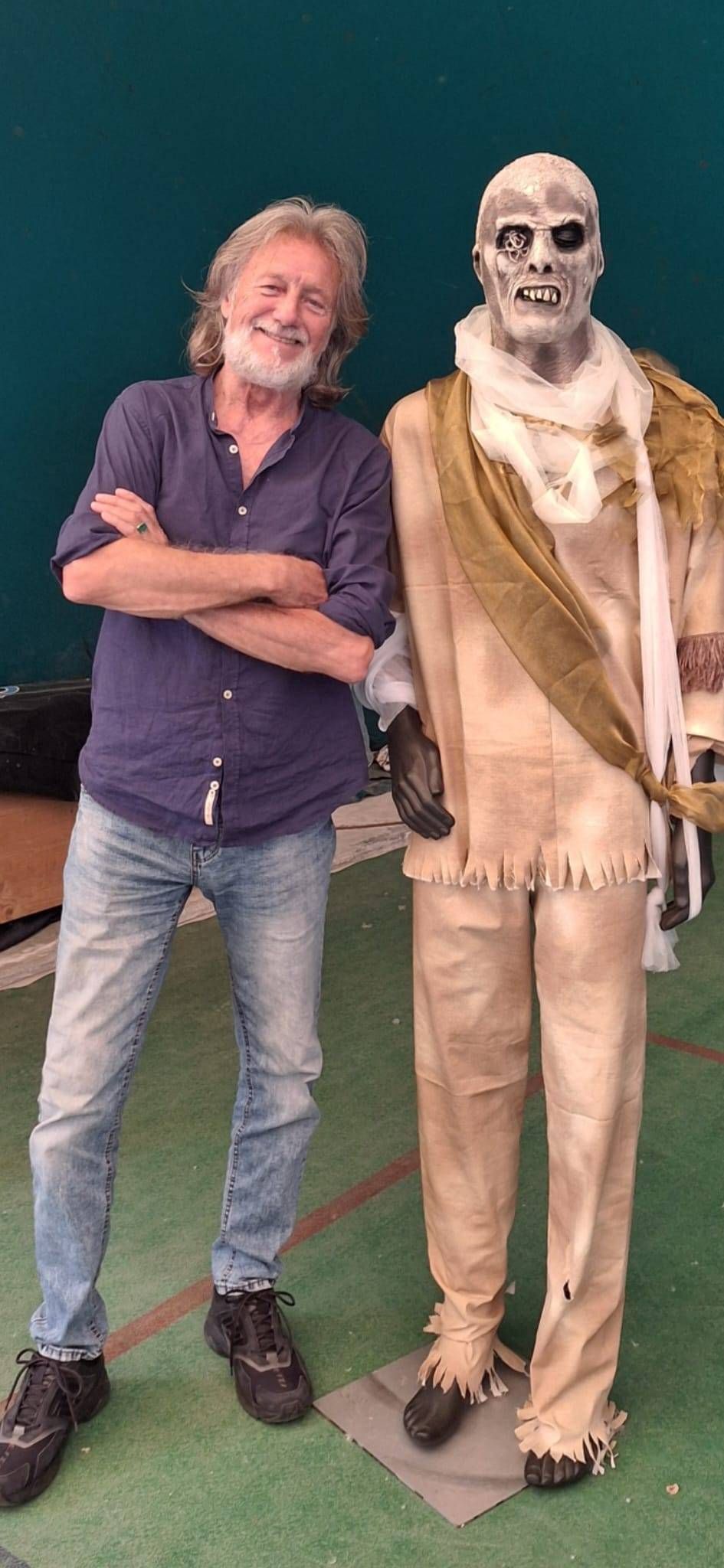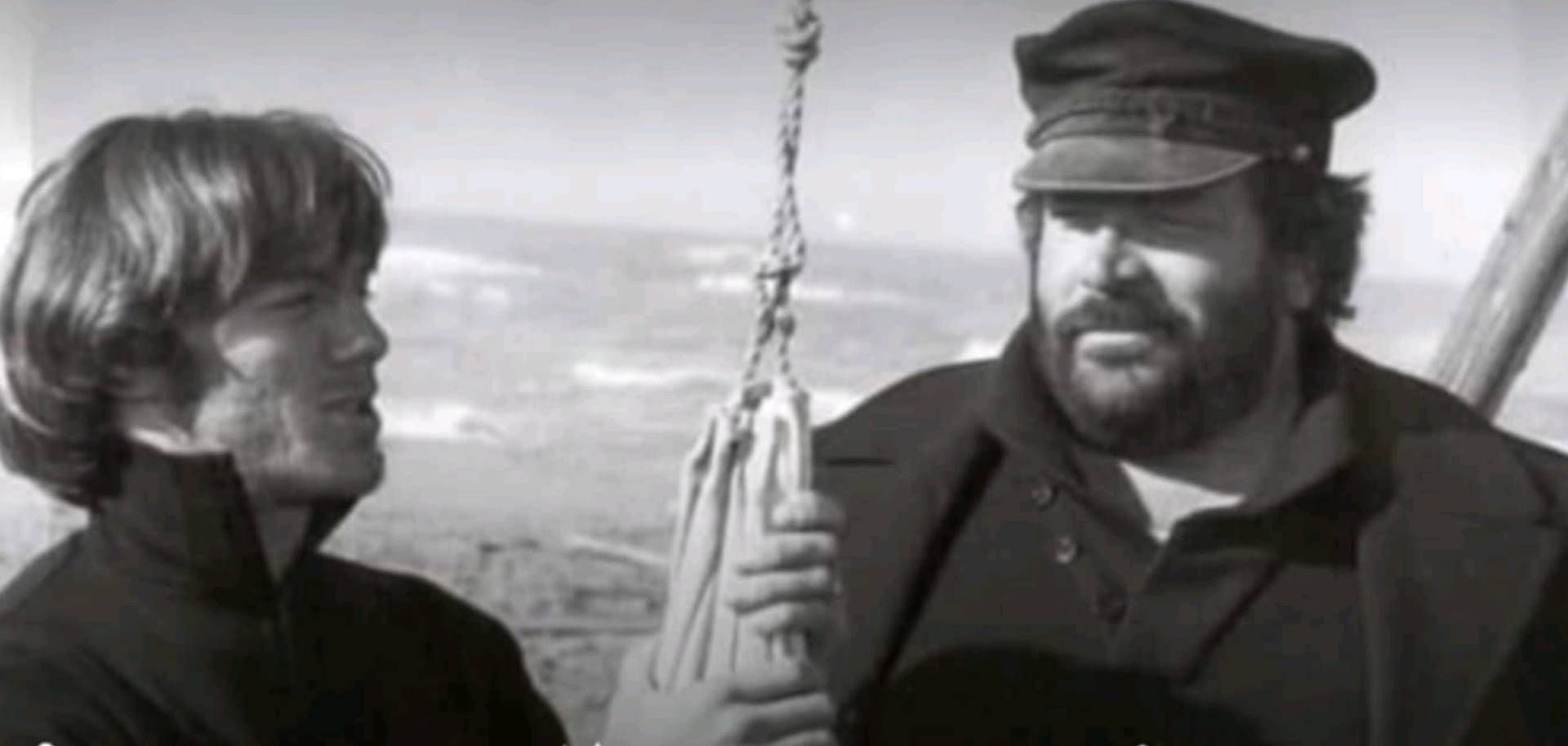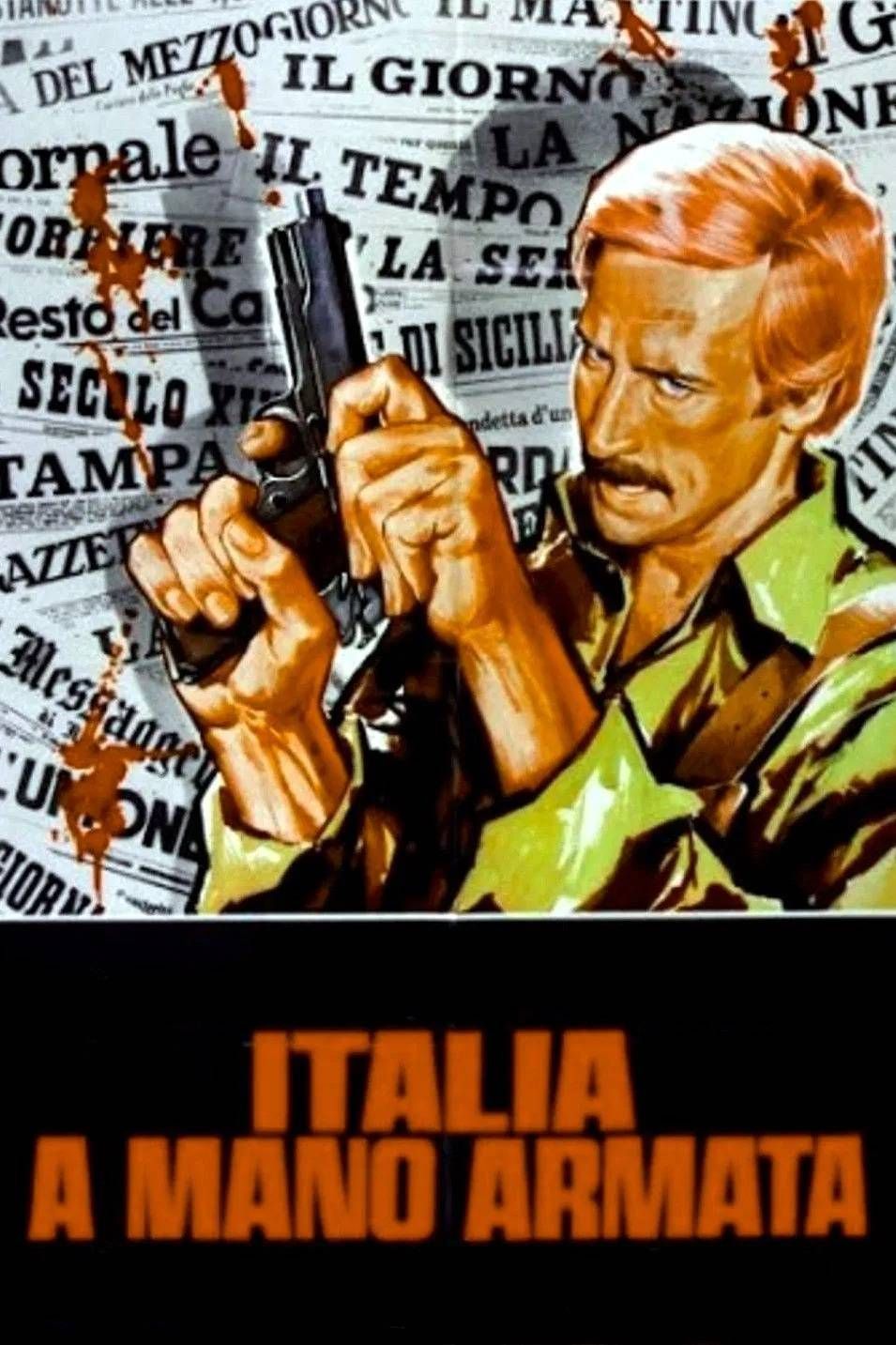Interview with Ottaviano dell'Acqua: a life between acrobatics, cinema and the evolution of the Italian film industry

Ottaviano dell'Acqua's career represents a singular and fascinating journey in the world of Italian entertainment, characterized by a rare combination of physical skills and stage presence. Born into a family of circus artists for generations, his first experiences developed in the circus environment, where he refined acrobatic techniques and trapeze numbers. This solid foundation in movement and body control was the springboard for an unexpected transition to cinema. Adnkronos Tech&Games had the opportunity to interview him on the occasion of Molfest 2025 in Molfetta, the pop culture festival organized by LEG, Live Emotion Group.
How did your career in entertainment begin?
My life began, literally, in flight. I come from a family of circus artists, for generations. My debut was in the circus, doing trapeze, acrobatic numbers... in short, a school of life and discipline. Then, there was a leap: from the circus tent to the film set. I started very young, acting in a Fellini film, Satyricon , I think it was 1969. Shortly after, I was chosen for a western, " A Minute to Pray, a Moment to Die ". Here I played James Coburn as a young man, in flashbacks in which he remembered the killing of his parents.
When did you decide to switch from acting to stuntman?
It was a natural transition. My acrobatic skills led me to specialize as a stuntman. It's a completely different job than that of an actor: it requires enormous mental preparation. As a stuntman you have to be clear-headed, evaluate the risks in real time. The actor studies the script and transmits emotions. The stuntman, on the other hand, often works in extreme conditions, balanced between spectacle and danger .
You have worked with directors such as Lucio Fulci, Dario Argento, Bruno Mattei. Is there anyone who has remained in your heart?
Everyone, basically. But Bruno Mattei has a special place. He made very low-budget films, yet he always created a big family on set. For three years we worked in the Philippines, making horror and action films. Little money, a lot of enthusiasm. And yes, I also had a great relationship with Fulci: we respected each other, we had already done a lot of things together.
Among the film genres, dell'Acqua has a particular affection for two productions that have marked his career: the zombie genre and the films with Bud Spencer. His involvement in the famous "Zombi 2" (1979) by Lucio Fulci, where he played one of the most iconic zombies.

The zombie with the worms in his eye in Fulci's Zombi 2 is you, right?
(Laughs) Yes, that’s me. Fulci had this crazy idea of the zombie with worms and said, “I want it to be Octavian. I like how he moves.” My brother was the stunt coordinator, my whole family was involved. It was an important film, also because at that time Italian cinema was looking a lot at the American model. After Romero’s Night of the Living Dead, we also started working on the genre .
A film that has remained in your heart?
One is without a shadow of a doubt " They called him Bulldozer " with Bud Spencer, where I played Gerry. There I put aside the circus tamer to concentrate on the profession of stuntman and actor. I was chosen among many, the director Michele Lupo said: “The role is Ottaviano's, I don't want to see anyone else”. We shot everything live in English, with coaches every day. It was a beautiful time: young, enthusiastic, full of desire to do. And then there was Bud Spencer. He was a good man, very protective. He always wanted his group close by. Bud [Spencer] worried about me, because I was the youngest. He said: 'Be careful, so he doesn't get hurt! Be more careful!'. Then, we were in America, and at a certain point – since he wanted his team of stuntmen always with him at dinner, one evening I said to him: ' Maestro, can I ask you a favor? '. He said to me: 'Tell me'. "We are in America, it's not like you live by eating alone! There are also discos, there are beautiful girls!'. And he replied: 'You can do it, but don't get into the habit. Every now and then you can go to the disco, but you have to be with me. He was very jealous of his group.
An anecdote that particularly struck you?

Look, there is an episode that I would define as funny but not too much. We were in America to shoot the film 'Who finds a friend finds a treasure', again with Bud Spencer. The director asked me to climb over a fence and jump into a puddle of water. For me, who was very agile, even a four-meter wall would have been a walk in the park. We were in an abandoned zoo, it was closed.
As I approached to go up, the zookeeper suddenly came out and started yelling like crazy: 'What are you doing? Stop!'. Bud and I stopped, not understanding why. He said to us: 'Now I'll show you why'. He picked up a chicken and threw it over the fence. Out jumped a crocodile of at least eight meters, enormous! It saved my life, it was the only animal they couldn't take away .
How has Italian cinema changed since then?
It's changed a lot. We used to make horror, westerns, action films, popular genres. Now, with a few rare exceptions, we make almost only comedies or dramas. But I think the problem is upstream: there are no more screenwriters. It's a change that I honestly haven't understood. Maybe the market is asking for something different now. For ten years now, we haven't been able to produce like before, and then there's no longer anyone who writes, which is the big problem. There are no more screenwriters, no one writes anymore, no one wants to waste time. This is because maybe out of ten screenplays, only one is chosen. Instead, when I started, ten were written: the main one that made the film got a certain amount of money, but all the other nine still got an expense reimbursement.
There is a structural problem in cinema, how it reports funds, how funds are assigned, and how... how the State also [intervenes]. There is an example now, of a fact that in itself is sensational: that American [Kaufmann], involved in the Villa Pamphili murder, asked for and was granted over 800 thousand euros for the making of a film that then, in fact, was never distributed.
You have also participated in series that tell the history of our country...
Yes. I shot Il cacciatore di mafiosi, three seasons shot in Sicily, with a screenplay written by a real judge who worked with Falcone and Borsellino. We told the behind the scenes of Totò Riina, the Brusca brothers... it felt like you were really there, you felt like you were somehow "guests". Then there's Piazza delle Cinque Lune with Donald Sutherland, on the story of Aldo Moro. Or violent Rome, Italy with a gun in its hand. We have so much to tell, it's crazy that we can only tell certain aspects of Italy. As for films about the Roman Empire, just to give an example, the Americans have certainly made more than we have, paradoxical. And our way of telling things, of making films was also an example. Look at Tarantino, you may like it or not but he himself repeatedly states that he loves Italian cinema from the thirty years from the '60s to the '80s. He took a lot from those films, from Enzo Castellari above all. And he admits it too.

What are your plans for the future?
I worked with Zampaglione on a horror film, The Well, and he already told me that in October we'll start again for a new, even "stronger" project. There are so many proposals, I just have to decide where to go. The profession has changed, even communication is different. Before, they would come to interview you all the way to America: Famiglia Cristiana, Il Messaggero. Today, a post is enough, and often people don't even know who you are. As happened here in Molfetta for Molfest 2025. We were here and no one understood who we were and what we were doing... a post was enough and all hell broke loose in a crowd.
What do you think about social media and the way we communicate today?
In some ways they help. But I am especially concerned about the other side of the coin. Young people have lost curiosity and manual skills. They seem to look into a black hole when they have a smartphone in their hands. They don't write anymore. Every year I get a diary from the bank and I write everything by hand, every day.
How did you experience participating in Molfest 2025?
Marcello Vicini called me: “Do you want to be with us?”. I accepted with pleasure. I also needed a period to put my thoughts in order. Cinema is joy, entertainment, sharing. We need to go back to telling our stories, true ones to people and Molfetta was a way to go back to meeting people. Because that’s what I like about my job: giving unique and unforgettable moments.
Adnkronos International (AKI)




